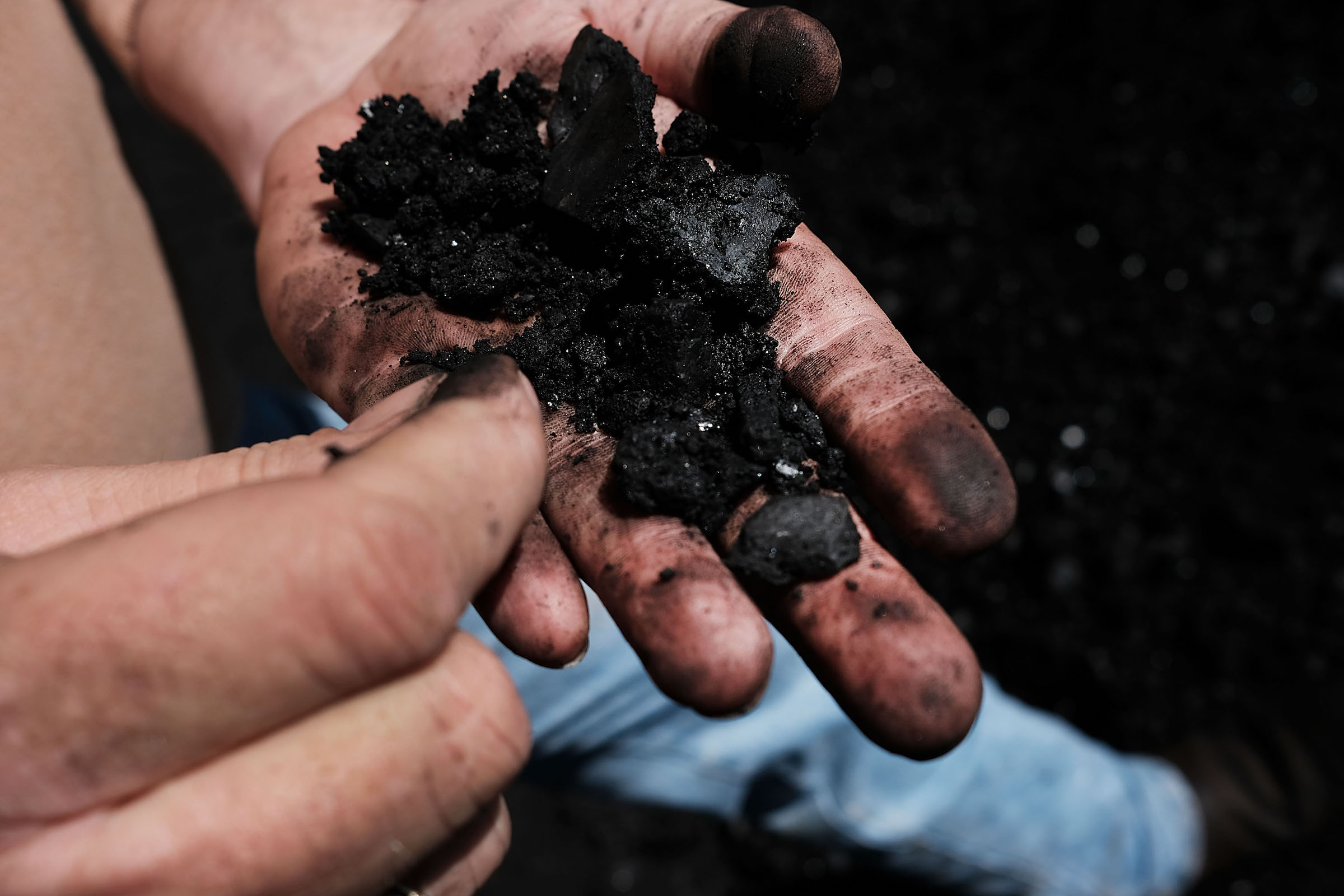
Consistency may not be Donald Trump’s strong suit, but there is at least one subject where the President has not wavered: his oft-repeated promise to revive the coal industry and the jobs he claims it will bring.
The Administration’s latest attempt to prop up this beleaguered industry came in the dead of night, when Energy Secretary Rick Perry released a long-awaited report on the reliability of our electric grid.
Sound boring? It’s a battleground.
For years, coal industry boosters have tried to place the blame for coal’s decline on government regulation — even though dispassionate market analysis shows that coal simply can’t compete against cheap natural gas in a world of rapidly growing renewable energy and lower-than-expected demand for electricity.
You can see why America’s coal barons are worried, and why the Trump Administration sought to ride to the rescue with Perry’s new report.
Since it was announced in April, this report was expected to promote coal and attack clean energy innovations by hyping a putative electric grid reliability crisis and claiming more coal could fix it. As Republican Sen. Chuck Grassley of Iowa warned, “a hastily developed study, which appears to pre-determine that variable, renewable sources such as wind have undermined grid reliability, will not be viewed as credible, relevant or worthy of valuable taxpayer resources.”
In the environmental community, we too expected the report to be unapologetic coal propaganda. So we were pleasantly surprised when a draft of the report was made public in July. Written by Department of Energy experts and leaked before the political appointees got a chance to rewrite it, the draft concluded that “the power system is more reliable today due to better planning, market discipline, and better operating rules and standards.” In other words: Sorry, coal — there is no grid reliability crisis. The report agreed with earlier analyses that found that an abundance of natural gas, not regulation or clean energy subsidies, is the primary driver of coal’s market woes and that America’s recent surge in renewable energy like wind and solar can lower electricity bills and help, not hurt, the reliability of the grid.
Yet the Trump Administration’s political people couldn’t let those reality-based conclusions stand. The final report Perry has now released replaces them with pro-coal positions, the facts be damned.
The rewritten final report concludes that regulations and subsidies are upsetting the electricity market, but offers no evidence to support this position. It emphasizes the need to improve reliability, though the evidence suggests that reliability already has been improving, even as coal has declined and renewable energy has increased. It argues that coal plants increase reliability, but also notes that “coal plants have relatively high and fixed operating costs and are relatively inflexible.” It fails to mention the subsidies coal already receives. And it willfully ignores the benefits, success and promise of renewable energy, energy efficiency and other technological advancements that have made our grid cleaner, more affordable and more reliable.
What’s most surprising, however, is that the report isn’t even worse. It could have declared a state of emergency, as some coal executives have been urging President Trump to do. It could have recommended billion-dollar subsidies for coal companies, as West Virginia Governor Jim Justice has proposed. It could have called for legislation to block renewable energy growth. It did none of those things, at least not explicitly. Still, it’s hard to get happy just because something isn’t quite the abomination it might have been.
This could have been an opportunity for Perry to set an ambitious energy agenda or, at the very least, to address our changing energy system honestly and impartially. Instead, the report shows that Secretary Perry has one energy priority: more coal. That means paying more money for dirty electricity Americans don’t want or need, and rolling back the innovations that have cleaned our air and created thousands of new energy jobs across the country. It means pretending that coal should be our future, not our past.
It’s dead wrong. But it is consistent.
More Must-Reads From TIME
- The 100 Most Influential People of 2024
- Coco Gauff Is Playing for Herself Now
- Scenes From Pro-Palestinian Encampments Across U.S. Universities
- 6 Compliments That Land Every Time
- If You're Dating Right Now , You're Brave: Column
- The AI That Could Heal a Divided Internet
- Fallout Is a Brilliant Model for the Future of Video Game Adaptations
- Want Weekly Recs on What to Watch, Read, and More? Sign Up for Worth Your Time
Contact us at letters@time.com